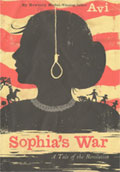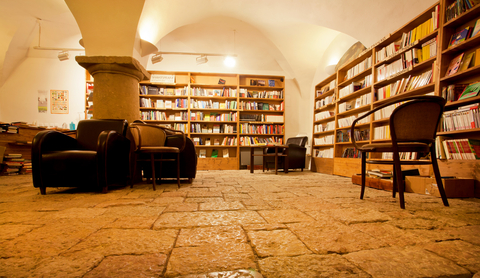 A reader here asks: “I would love to hear more about your tips for students on how to start the research process and lessons you have learned on how to sift through the vast amount of information on the internet.”
A reader here asks: “I would love to hear more about your tips for students on how to start the research process and lessons you have learned on how to sift through the vast amount of information on the internet.”
Research is a puzzle for many people, I think, because they approach a subject without previous knowledge. As a result, the massive amount of information on a given subject is indeed overwhelming.
 If you look at my historical novels you will see that they, by and large, concern the United States and the United Kingdom, with some about Europe. I read history for the pleasure of it, focusing on these areas. When you have a general knowledge of say, the American Revolution, it’s much easier to write about something in particular that happened, such as I did in Sophia’s War.
If you look at my historical novels you will see that they, by and large, concern the United States and the United Kingdom, with some about Europe. I read history for the pleasure of it, focusing on these areas. When you have a general knowledge of say, the American Revolution, it’s much easier to write about something in particular that happened, such as I did in Sophia’s War.
As to how to get information, and detail, if you will, about a particular moment, here are my suggestions.
Let us say you are interested in an incident during the Battle of Gettysburg, during our Civil War. The literature is vast. Here’s what you do.
Get a good, recent, general history of the Civil War. Read it so you have a general sense of big events. Learn why, for instance, the Battle of Gettysburg is considered important.
That general history, if it’s any good, will have a bibliography at the back of the book. See which books are cited for that battle. Choose one or two of them, and read them.
Those books will also have bibliographies. And those bibliographies will lead you to more books—and articles—which are more precisely concerned with your subject.
And so forth … you keep narrowing down to specifics—via bibliographies—to find out what you want to know.

How do you get your hands on these books, and articles? Your public library is a great place to begin. If they don’t have the title you want, many have interlibrary loan systems which will get what you need. Then—yes, on the internet—Google Scholar can help. Then, yes, again on the internet, seek out used-book dealers, and you can buy—often very cheaply—hard-to-find titles.
All during this process you should be reading, learning general and particular things. Finally, it is up to you to decide which particular details are interesting, revealing, and yes, entertaining to use. Just how to do that suggests another posting here.
In general I suggest that the more you know about the big picture, so to speak, the more you see the details.